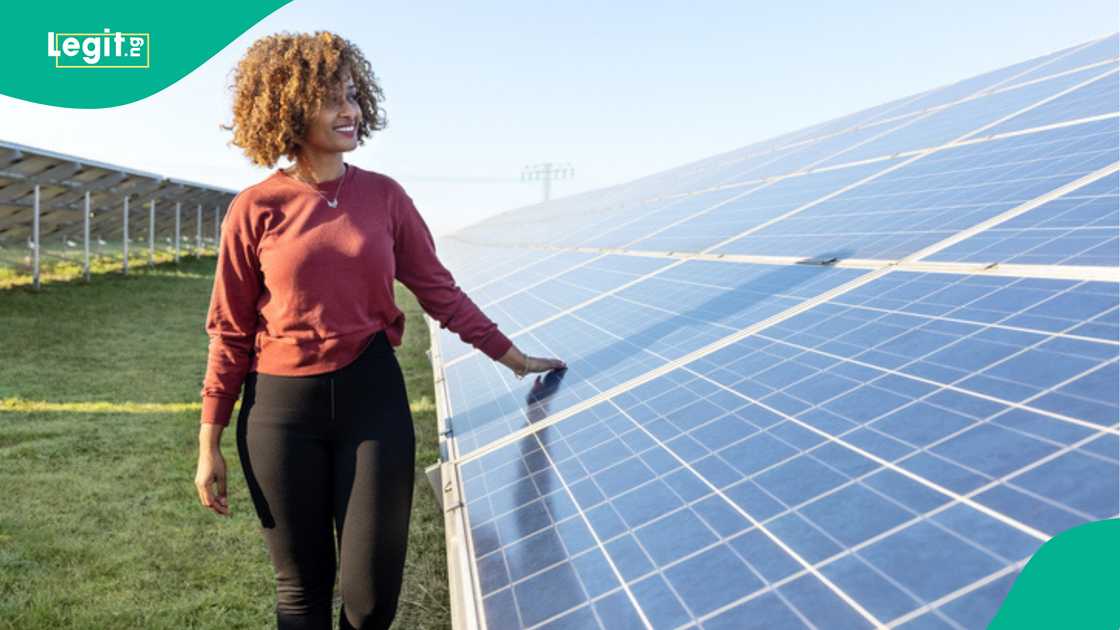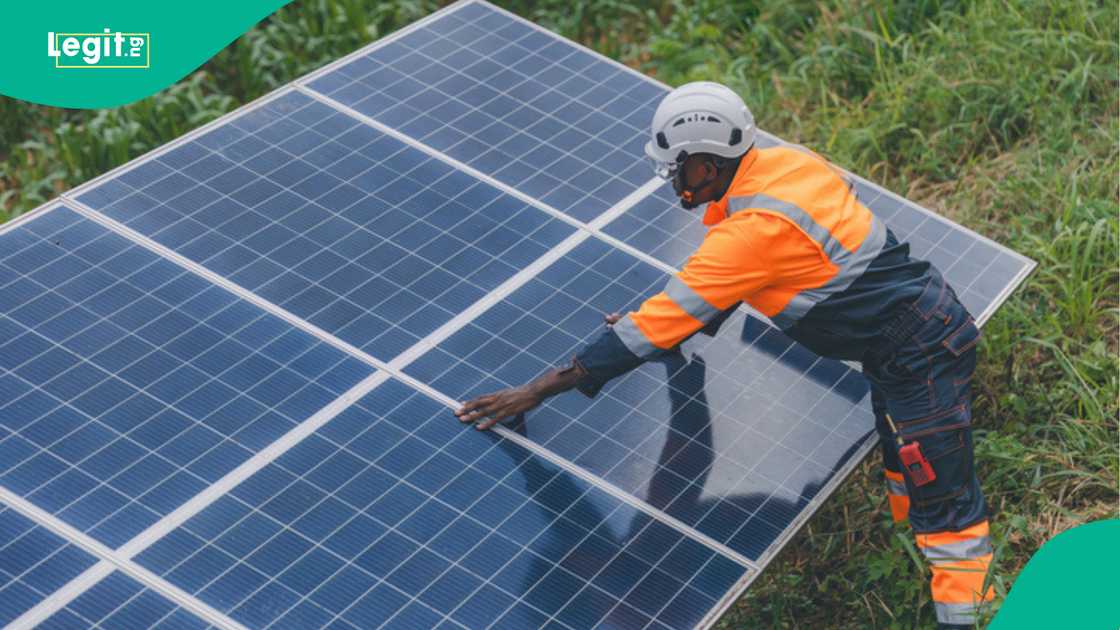-
Participants have voiced worries regarding the rumored initiative by the federal government to prohibit the importing of solar panels.
-
This happened following the FG’s recent announcement about plans to prohibit the importation of solar panels into the country.
-
Experts warn that companies putting money into solar energy initiatives could face operational difficulties.
The website ecosundiaries.com.ng features journalist Zainab Iwayemi, who boasts five years of experience reporting on the economy, technology, and capital markets.
Stakeholders and economic experts have raised concerns about the alleged suggestion from the federal government to ban the importation of solar panels.

To encourage local manufacturing and expedite the nation’s shift towards renewable energy sources, the federal authorities recently declared their plan to prohibit the importation of solar panels.
Presidential Executive Order No. 5, aimed at prioritizing local content in science, engineering, and technology sectors, aligns with this objective as well.
According to Daily Trust, Uche Nnaji, who serves as Nigeria’s Minister of Science and Technology, highlighted the nation’s capability to produce its own solar panels. He pointed out that the National Agency for Science and Engineering Infrastructure (NASENI) plays a significant role in this local manufacturing effort.
“We have an abundant supply of lithium right here in Nigeria, which is why Mr. President has taken initiative. We aim to add more value to our raw resources. The lithium available locally will undergo processing and be utilized as batteries for automobiles,” he stated.
How experts react
Nevertheless, experts caution that companies which have invested in solar energy solutions might encounter operational challenges due to this strategy.
Despite vehemently disagreeing with the proposed policy, the CPPE expressed reservations regarding the remarks credited to the minister.
Nigeria currently faces some of the lowest levels of energy access, with an average per capita electricity consumption of around 160 kWh, which is considerably lower than the sub-Saharan African average of 350 kWh. This information was shared by Dr. Muda Yusuf, the Director/CEO of the CPPE, as he explained the reasons behind these figures.
As he puts it, implementing the solar energy solution “stands out as one of the most effective governmental actions to address this issue and has attracted significant attention.”
Considering the severely inadequate domestic manufacturing capacity, the CPPE stated that banning the export of solar panels would worsen the country’s energy shortage.
The relocation is anticipated to further reduce energy accessibility.
According to Dr. Muda, the government’s strategy aimed at promoting and intensifying the adoption of renewable energy sources among households, small businesses, rural areas, public sector entities, and various corporations has been entirely overturned.
In the past couple of years, there has been a significant surge in the adoption of solar solutions, notably due to the rapidly increasing energy expenses within the economy.
The statement added,
It would exacerbate the issue of energy accessibility because it would render solar energy solutions unaffordable, placing them out of reach for the typical Nigerian.
“The welfare cost of a ban on the importation of solar panels would be incredibly high as a result of the escalation in the cost of acquiring solar solutions.
“The present expense of obtaining solar energy solutions is already excessively high. Instead of increasing these costs, we should focus on finding methods to enhance affordability.”

Nevertheless, considering the significant energy demand within the economy and the evident limitations of local manufacturing capabilities for solar panels, the CPPE confirmed that Nigeria is not prepared to impose a ban on imported solar panels.
The CPPE suggests that the government should instead provide strong fiscal and monetary encouragements to those investing in solar panel manufacturing—such as tax breaks, reduced tariffs on intermediary goods, and affordable long-term loans with interest rates below ten percent.
Simultaneously, the CPPE encourages the administration to reduce the import tax on batteries, inverters, and wind turbines to 5%. Such a reduction would notably enhance energy accessibility, bolster energy security, and boost economic productivity.
A solar panel plant inaugurates in Lagos
ecosundiaries.com.ng
It was reported that LPV Technologies, a Nigerian solar energy firm, has inaugurated a new solar panel manufacturing plant in Lagos.
The firm is pushing the administration to prohibit the entry of solar panels in order to promote domestic manufacturing.
Nigeria struggles with energy shortages, as only about 60% of the country has access to electricity. Solar power is seen as a good alternative, especially for rural areas.